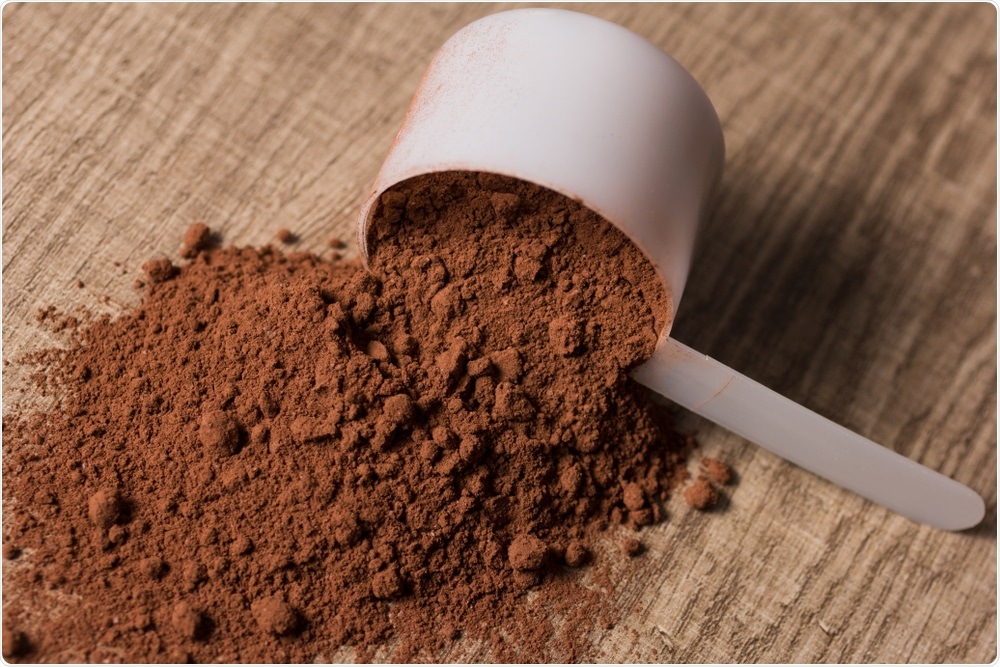A recent review of published data indicates that protein ingested prior to overnight sleep stimulates protein synthesis. A bedtime protein shake could, therefore, help build muscles mass after resistance exercise and prevent muscle wastage in the elderly.
 Vergani Fotografia | Shutterstock
Vergani Fotografia | Shutterstock
The synergistic effect between nutrition and exercise on the synthesis of muscle protein is well established. Resistance exercise stimulates muscle breakdown as well as an increase in skeletal muscle mass. Protein intake after exercise is therefore needed to prevent an overall loss in muscle mass.
It is for this reason that many athletes and people undertaking weight training take protein shakes after exercise. The extent of the effect on muscle mass, however, varies according to the type, amount, distribution, and timing of the protein ingestion.
Most recently, it has been postulated that the impact of ingested protein on muscle mass is greatest when it is taken just before bedtime. Numerous studies have been conducted with varying conclusions.
Researchers at NUTRIM School of Nutrition and Translational Research in Metabolism in Maastricht have reviewed the available data in a paper published yesterday in Frontiers in Nutrition.
Several one-night studies have shown that pre-sleep protein intake increases muscle protein synthesis during overnight sleep in young adults. These have fuelled the idea that over a longer period, a pre-sleep protein supplement can maximize the strength and muscle mass gains during regular resistance exercise training."
Dr. Tim Snijders, Lead Author
In one of the studies, Snijders and his team assessed the effect of bedtime protein intake in 44 healthy young men on a 12-week lifting program.
Half of the participants received a pre-sleep protein shake containing about 30g of casein and 15 grams of carbs every night, whilst the others were given an energy-free drink. The training effectively increased quadricep muscle size in both groups, but the increase was significantly greater in the group taking bedtime protein and was associated with a greater increase in muscle strength and size.
The team also wanted to assess whether these muscle gains were achieved by the timing of the protein intake rather than just additional protein intake. However, they calculated that in order to achieve adequate power to detect a difference, such a study would require a huge number of volunteers. This explains why studies conducted to date on this issue have been inconclusive.
Although it has not been definitively proven, the available facts do support the importance of the timing of protein intake.
Muscle recovery and growth tend to occur during sleep when the muscles are not being used. However, in order for this to occur amino acids are needed and these are not stored by the body.
Increasing the level of circulating amino acids before going to sleep thus makes more available for overnight muscle repair, and so increases muscle growth. In addition, late-night protein intake has not been found to affect sleep quality or increase the amount of fat stored.
The team concluded that that protein taken last thing at night is effectively digested and absorbed during sleep. This in turn increases the availability of amino acids and stimulates the synthesis of muscle protein during overnight sleep. This effect is increased if pre-sleep protein intake follows exercise performed earlier that evening.
Source
Snijders T, et al. The Impact of Pre-sleep Protein Ingestion on the Skeletal Muscle Adaptive Response to Exercise in Humans: An Update. Front. Nutr., 06 March 2019.